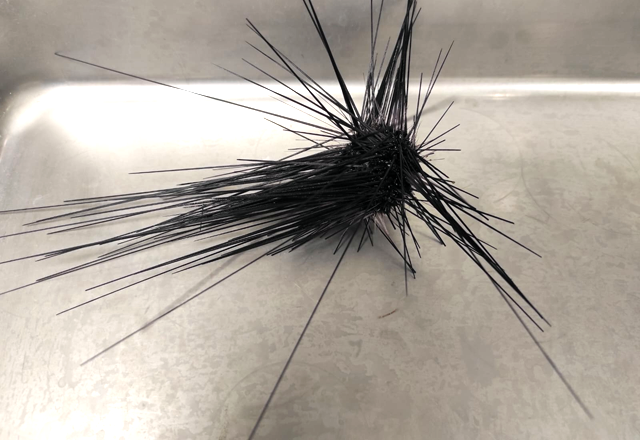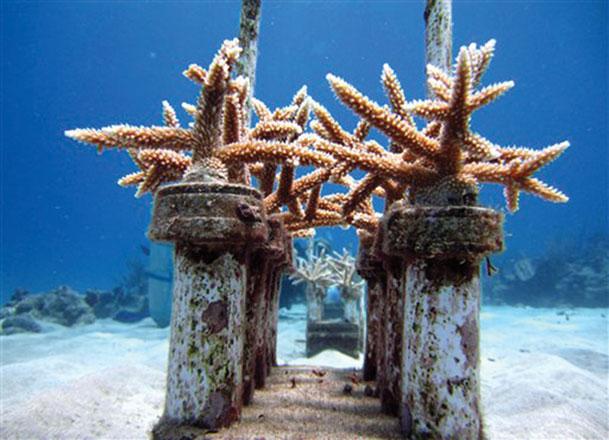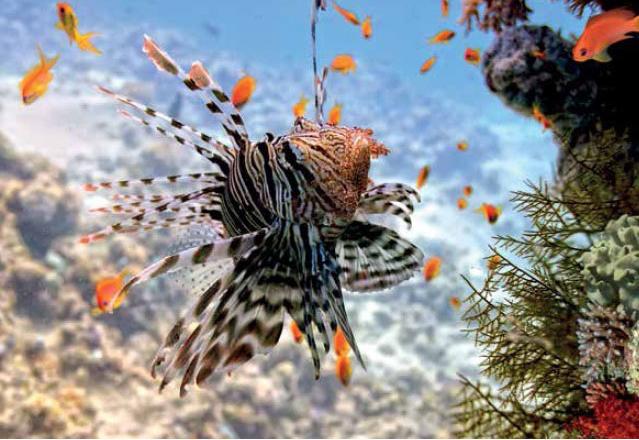You are here
Sea urchins in Gulf of Aqaba make a comeback following massive count decline — survey
By Rayya Al Muheisen - Oct 01,2023 - Last updated at Oct 01,2023

Sea urchins, the spiky creatures, are known for their vital role in maintaining coral health (Photo courtesy of Aqaba Marine Reserve)
AQABA — The once-declining population of sea urchins in the Gulf of Aqaba is showing signs of a resurgence following a catastrophic population decrease that baffled scientists and raised concerns about the future of the delicate marine ecosystem, according to officials.
Nasser Zawaydeh, president of Aqaba Marine Reserve, shared with The Jordan Times the remarkable findings of a recent survey conducted by marine researchers in Aqaba.
“A 16 per cent increase in the sea urchin count was witnessed during the last survey which took place last month,” Zawaydeh said.
Zawaydeh emphasised that this resurgence is not just about numbers; it also highlights a significant improvement in the size and health of sea urchins.
“These spiky creatures, known for their vital role in maintaining coral health, have been instrumental in assisting coral larvae to settle and grow while simultaneously keeping algae in check by preventing it from blocking sunlight,” Zawaydeh said.
A source at the marine reserve told The Jordan Times that the significant population decrease was potentially caused by a single-cell parasite called pilaster, found in the Caribbean.
“This parasite was found in multiple locations across the globe and is most likely the main reason behind the loss of sea urchins,” the source added.
The sea urchins’ road to recovery was noticed by Aqaba scuba divers. Abu Ja’far, a scuba diver from Aqaba, told The Jordan Times that the infected black sea urchins, stripped of their defensive spines, became easy prey for predatory fish.
“It’s a heartbreaking sight to see sea urchins lose tissue until all that’s left is a bare skeleton,” Abu Ja’far said. “Their mortality is incredibly rapid, and their growth rate is very small.”
The sudden decline in the sea urchin populations has been attributed to various factors, including the spread of disease, said Zawaydeh.
Experts suspect that the huge decrease in number has been facilitated by human activities, particularly shipping.
“These spiky marine inhabitants, with defensive spines measuring up to 50cm in length, were a common sight along the coastal reefs of the Gulf of Aqaba,” Abu Ja’far said.
The alarming disappearance of sea urchins has raised concerns not only for their own species but also for the entire marine ecosystem, said Abu Ja’far.
Abu Ja’far added that coral reefs will be strongly affected by the loss of sea urchins that have thrived in the Red Sea for over 5,000 years.
Related Articles
One to two square kilometres of Aqaba’s public beaches are lost every year to investment projects, according to marine conservationists.
MIAMI — Coral reefs are fragile and in danger worldwide, but a growing movement to restore them is based on the science of breaking of
AMMAN — Prompted by a lack of information on the Gulf of Aqaba’s harmful creatures, two local conservationists have released the first guide




















